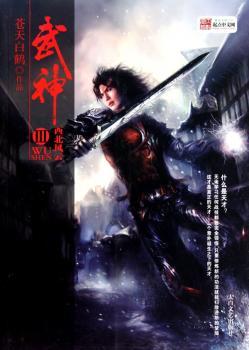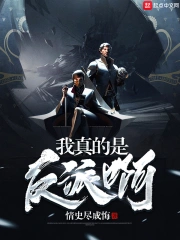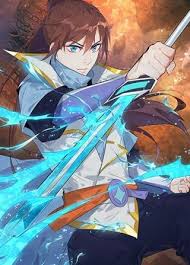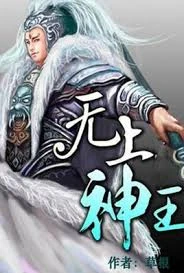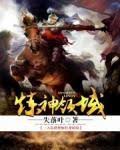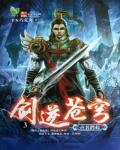The Story in 3 Sentences
An ordinary university student, Ye Xiwen, is ripped from his mundane life on Earth and reborn into the brutal, high-stakes True Martial Domain, a world where martial prowess dictates survival and power can shatter continents.
His fortunes change irrevocably when he discovers a mysterious internal space that can analyze and perfect any martial art or cultivation technique he encounters, turning his initially mediocre talent into an unstoppable engine for rapid, exponential growth.
Fueled by this cheat-like ability and an insatiable hunger for resources, he ascends from an insignificant nobody to challenge the heavens themselves, leaving a trail of shattered geniuses and rewritten destinies in his wake.
Why It Stands Out
1. The Ultimate Power Fantasy Engine
The novel’s core hook is its brilliantly simple and endlessly satisfying progression system. The “Martial God Space” isn’t just a storage item; it’s a hyper-advanced analytical computer for cultivation. It removes the traditional barriers of comprehension and trial-and-error, allowing the protagonist to master techniques that would take others lifetimes in mere days or weeks. This creates a uniquely addictive rhythm where every new encounter, every new technique stolen or learned, becomes a direct, quantifiable power-up, feeding the reader’s desire for constant, visible advancement.
2. A World Built for Conquest
The True Martial Domain is not a backdrop; it’s a meticulously designed playground for escalation. The author constructs a vast, multi-layered universe filled with ancient sects, hidden realms, cosmic battles, and power systems that constantly expand in scope. Just as the protagonist masters one level, the story reveals a higher, more dangerous plane of existence, ensuring the stakes and the sense of wonder never plateau. This relentless upward trajectory keeps the narrative perpetually fresh and exciting.
3. Unapologetic Wish Fulfillment Done Right
Martial God Space embraces its xianxia roots with zero apologies. It delivers exactly what its target audience craves: a protagonist who starts at the bottom, acquires an overpowered system, crushes arrogant rivals, attracts beautiful companions, and accumulates unimaginable wealth and power. The genius lies in its execution; the wish fulfillment is so consistent, so well-paced, and so deeply integrated into the world’s rules that it feels earned rather than cheap, making it a pure, unadulterated power trip that readers can fully immerse themselves in.
Characters That Leave a Mark
There’s Gu Qingyi – a peerless sword maiden whose icy demeanor and unmatched sword intent make her a formidable rival and later, a crucial ally, her presence often signaling the arrival of a high-stakes battle or a profound martial revelation.
You’ll meet Mo Qingxue, who stands as one of the earliest and most loyal companions to the protagonist, her gentle nature and unwavering support providing a crucial emotional anchor amidst the story’s relentless chaos and bloodshed.
And Han Bingyan? They’re the one who embodies the cutthroat ambition of the cultivation world, a genius from a powerful faction whose repeated clashes with the protagonist serve as major milestones, each defeat fueling their own growth and setting the stage for even grander, more explosive confrontations.
The Flaws Fans Debate
The protagonist’s overwhelming advantage from the Martial God Space can make conflicts feel predictable and reduce tension, as victory often feels assured from the outset.
The harem elements, while common for the genre, are sometimes criticized for being underdeveloped, with female characters occasionally serving more as trophies or plot devices than fully realized individuals.
The sheer length of the novel, spanning thousands of chapters, inevitably leads to pacing issues and repetitive plot structures, particularly in the middle arcs where the formula of “enter new realm, find resources, defeat local genius” is frequently reused.
Must-Experience Arcs
Ch. 1–50: Earth to True Martial Domain – The foundational arc where Ye Xiwen transmigrates, discovers his space, and survives his first brutal encounters, establishing the core rules of his power and the harsh reality of his new world.
Ch. 800–1200: The God Realm Ascent – A pivotal middle arc where the protagonist breaks into the God Realm, facing deities and ancient beings, marking a massive power shift and expanding the story’s cosmic scale.
Ch. 3500–3886: The Final Heavenly War – The epic conclusion where all accumulated power, alliances, and enmities culminate in a universe-shattering conflict against the ultimate heavenly authorities, delivering on the series’ promise of godlike ascension.
Killer Quotes
“Power is not given, it is taken. The heavens themselves bow only to the fist that can shatter them.”
“In the river of time, geniuses are but fleeting sparks. Only those who dare to defy fate leave an eternal mark.”
“The greatest martial art is not found in ancient scrolls, but forged in the crucible of unyielding will and endless battle.”
Cultural Impact
It became a benchmark for “system-based” xianxia protagonists, inspiring countless imitators who sought to replicate its addictive progression formula.
Fans created memes around the “Martial God Space,” jokingly referring to it as the “ultimate cheat code” or “cultivation simulator” that made every other training method obsolete.
Despite its niche status compared to giants like “Coiling Dragon,” it maintains a fiercely loyal cult following who praise its consistent power fantasy and marathon-length escapism.
Final Verdict
Start Here If You Want:
A pure, unadulterated power fantasy where the underdog rises to become an unstoppable force.
A cultivation novel with a unique, game-like progression system that provides constant, satisfying power-ups.
An epic, doorstopper-length adventure that lets you live vicariously through a protagonist who conquers every challenge the universe throws at him.
Study If You Love:
The mechanics of xianxia world-building and how authors create escalating power systems to sustain long-form narratives.
The psychology of wish fulfillment in literature and why “cheat” protagonists remain so enduringly popular.
The evolution of the transmigration trope and how it serves as a vehicle for exploring themes of destiny, meritocracy, and self-made power.
Avoid If You Prefer:
Complex, morally ambiguous characters and intricate political plots over straightforward action and progression.
Tightly paced, concise narratives without repetitive or filler-heavy sections.
Stories where the protagonist’s victories are hard-won and uncertain, rather than systematically guaranteed by an overpowered ability.
